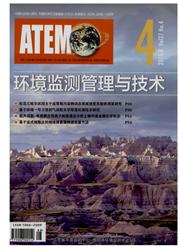

 中文摘要:
中文摘要:
采用模糊综合评价模型的最大隶属及加权平均原则对黔江城区饮用水水源地(小南海水库、城北水库和洞塘水库)水质进行评价,并将评价结果与常规单因素分析法、富营养化评价的结果作对比分析。研究表明,采用最大隶属原则评价显示3个水源地的水质基本保持在Ⅱ类以上,采用隶属度加权平均原则评价水质结果为1.47级,而单因子评价结果显示3个水源地水质结果均为Ⅲ类以上。另外,模糊综合评价结果与富营养化评价结果相一致,说明模糊综合评价模型评价结果更直观、连续。
 英文摘要:
英文摘要:
Compared with the single-factor evaluation and eutrophication evaluation, the maximum member-ship principle and the weighted average principle of fuzzy comprehensive evaluation were conducted to evaluate the water qualities of three potable water reservoirs ( Xiaonanhai Reservoir, Chengbei Reservior, Dongtang Re- servior) in Qianjiang District. The results showed that all of the three potable water reservoirs reach class II standard for drinking water quality by maximum membership principle evaluation and a 1.47 grade of water qual-ity by weighted average principle evaluation, while the class III standard were evaluated by single-factor evalua-tion. And, a consistent assessment from the eutrophication evaluation and the fuzzy comprehensive evaluation al-so indicated the intuition and continuity of the fuzzy comprehensive evaluation.
 同期刊论文项目
同期刊论文项目
 同项目期刊论文
同项目期刊论文
 期刊信息
期刊信息
